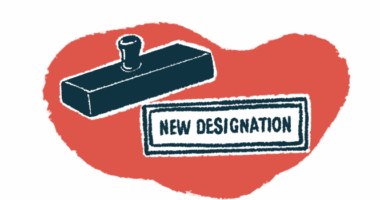A Guide to Medical IDs and How to Pick the Right One for You
When I was little, I wore a medical ID bracelet because I had asthma. Twelve years later, I recently bought a new one to replace the old one, which I lost. These days, with the progression of my disease and new symptoms popping up every few years, I have many more medical conditions to engrave on a bracelet than just asthma.
In an emergency, if you’re unresponsive, a medical ID is important to have for a couple of reasons:
- It lets first responders and doctors know what condition(s) you have, so that they know how best to treat you.
- It helps the nurses know whom to call, so they can get the proper medical information.
Both of these things are crucial in a life-or-death situation. I not only know this from watching many ER shows on television, but also because I have been picked up by paramedics and have been in the emergency room numerous times.
Medical IDs aren’t one-type-fits-all. Some people prefer to have a necklace instead of a bracelet. Or you can choose to carry a simple medical ID card in your wallet with all of your important medical info on it. You could even choose to have a flash drive in the shape of a bracelet that a doctor can upload onto a computer and have instant access to your information. As a woman, I wanted something that resembled a piece of jewelry.
The Muscular Atrophy News forums are a place to connect with other patients, share tips and talk about the latest research. Check them out today!
Some medical ID jewelry can be pretty expensive, so before starting your search, you should first establish a budget. I stuck to less than $50 including the engraving, which was $17. Just remember that you’ll want something that’s going to last for a while, so more money usually equals better quality. Another tip to help you stay on budget is to always look in the sale section before anything else. You never know, you might find something you love at a great price.
There are many places to buy a medical IDs, depending on what form you prefer. My top websites to look for a bracelet were:
All these sites carry a wide range of medical ID jewelry for men, women, and children. These specific sites stood out to me because of the beautiful bracelets for women. I ended up choosing the Vienna bracelet from Stickyj.com because it can be worn in the water, and if any of my information changes, I can just order a new ID tag and easily attach it to my bracelet, thanks to the lobster claws. The price for this bracelet was $19.99. plus $17 for the engraving and $4 for shipping. The nice thing was I didn’t have to pay extra for a tag because it came with the bracelet.
In deciding what to have engraved on the tag, I tried to put myself in the doctors’ shoes: What would they consider important information? Instead of having my disease engraved, I decided it would be better to list the most crucial symptoms that would affect any treatment methods. For example, instead of mitochondrial myopathy, I decided on cardiomyopathy and malignant hyperthermia. I also chose to have one of my doctor’s phone numbers and an ICE (In Case of Emergency) phone number as my contact info. Be aware that there might not be enough room on the tag to fit everything you want, so choose wisely. I also suggest getting a tag that can be engraved on the front as well, if you run out of room on the back.
The best type of etching is called laser engraving. Unlike traditional engraving, which involves a tool etching the letters and numbers into the metal, laser engraving uses a laser beam to make contrast markings. Traditional etched engraving can wear down over time, but laser engraving doesn’t, which is why it’s recommended for children’s jewelry. This method cannot be used on sterling silver or gold, only on stainless steel.
I hope you found this article helpful and that you find a medical ID that’s right for you or your loved one.
***
Note: Muscular Dystrophy News is strictly a news and information website about the disease. It does not provide medical advice, diagnosis or treatment. This content is not intended to be a substitute for professional medical advice, diagnosis, or treatment. Always seek the advice of your physician or another qualified health provider with any questions you may have regarding a medical condition. Never disregard professional medical advice or delay in seeking it because of something you have read on this website. The opinions expressed in this column are not those of Muscular Dystrophy News or its parent company, Bionews Services, and are intended to spark discussion about issues pertaining to muscular dystrophy.







Adam Martin
Hi,
I recently got the medical id. And it is linked to an updateable online profile, where even more of your important information can be recorded. I loved to use it.